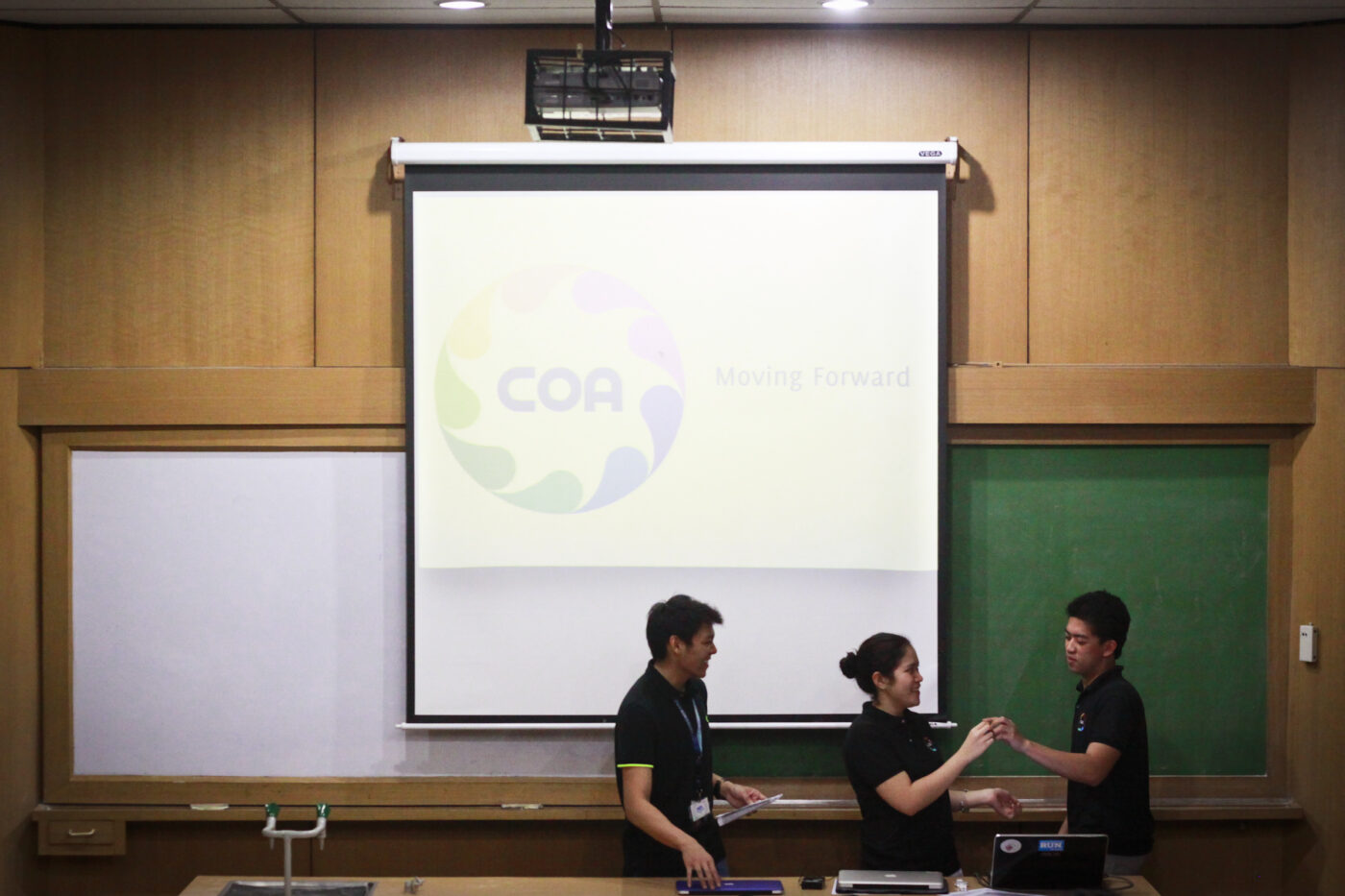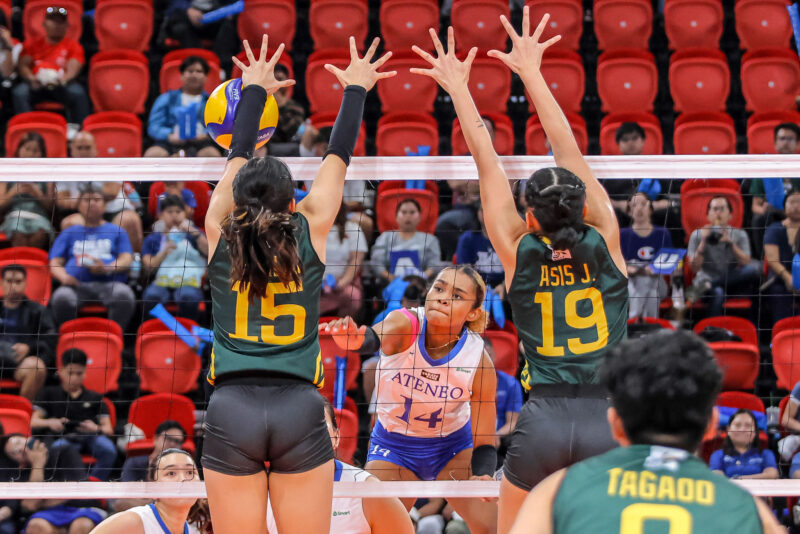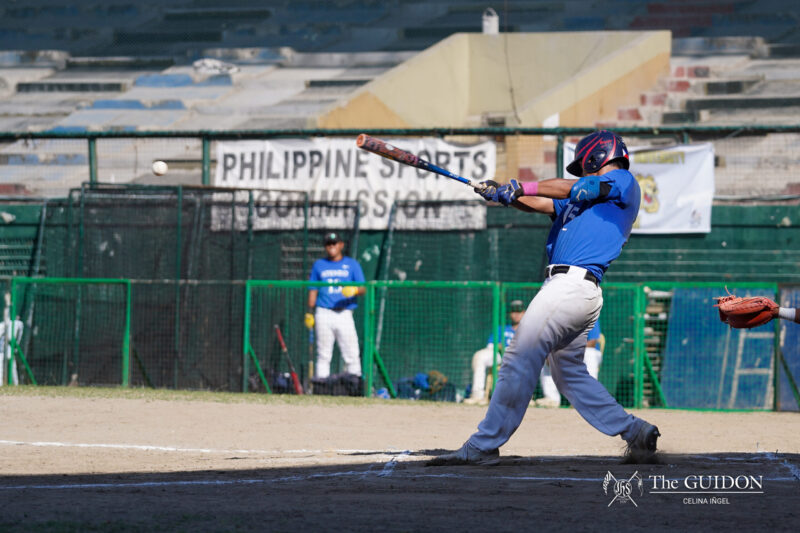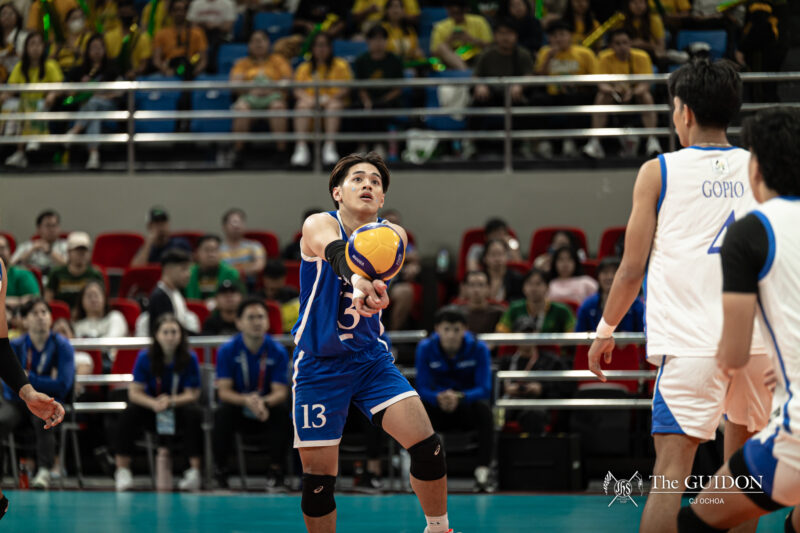DURING ITS State of the Council Address (SOCA) on November 12, the Council of Organizations of the Ateneo (COA) announced the formation of seven committees that will help solve and alleviate common management and development issues faced by student organizations.
The new committees are focused on serving areas ranging from managing internal affairs, to facilitating partnerships between Ateneo organizations and parties outside of the university.
“In line with [COA’s] key areas of excellence, community and nation-building, [the COA Central Board (CB) is] working to help build a stage where the organizations will perform and excel,” said COA President Karlo Abadines during the SOCA.
The new committees are as follows: The Committee on Administrative Relations (CAR), the Committee on Community Building (CCB), the Committee on Partnership (CP), the Transition and Organization Change Committee (Torch), the Nation-building and Advocacy Committee (NBA), the Support and Formation Committee (SFC), and the Processes, Systems and Structure Committee (PSS).
Rationale
According to Abadines, the seven committees were created in light of the concerns raised by student organization presidents during COA’s meeting on October 21.
The meeting was held on the last and third day of the Office of Student Activities (OSA)-organized Student Leaders’ Evaluation Seminar, with OSA Director Chris Castillo and the Sanggunian also in attendance. The first two days were allotted for team-building workshops while the third day was given for COA and the Sanggunian to have breakout sessions with their respective officers.
During the SOCA, COA Inter-Cultural Relations Cluster Secretary-Treasurer Ryan Symaco said the concerns included coordinating with OSA and the Office of Administrative Services (OAS), adhering to organization core competencies, and dealing with stereotypes on organizations and entire clusters.
In the same council address, Sector-Based Cluster Secretary-Treasurer Erin Feliciano said that the concerns raised by the organizations are gaps that prevent them from moving “from their present state to their ideal state.”
Feliciano said that it is in the ideal state where organizations fully work and satisfy their main missions and visions.
She further stated that the seven committees were established to directly tackle the problems and present solutions in order to help “lift COA’s organizations up to their ideal state.”
Committees in detail
Each of the seven committees target specific areas and will directly work with organizations to address these problems.
A primer distributed by the COA during the SOCA further elaborated on the specific purpose of the new committees.
The CAR, Torch, PSS and SFC are targeted towards dealing with the internal affairs of each organization.
The primer stated that CAR aims to use COA’s position as the main conduit between student organizations and the Loyola Schools administration to facilitate efficient communication and to act as mediator between both parties.
According to Feliciano, the CAR was the committee requested the most by organization presidents at the meeting, noting that “issues in dealing with bureaucracy” in terms of transactions with OSA and OAS were the most pressing.
In addition, Torch is concerned with internal change issues of organizations, such as transitioning between incumbent and incoming presidents, change and risk management, and member involvement and assessment.
According to Feliciano, Torch’s mission of better facilitating transitions is important over the upcoming semester due to the impending calendar change and the challenges it poses on transitioning organization officers.
Moreover, the PSS will assess, evaluate and reorganize the internal systems and structures of organizations; the PSS will also offer strategies and solutions to internal problems faced by the organizations.
As for the SFC, it will focus on developing an organization’s members and will offer financial support to help bolster projects.
The final three committees, the CCB, CP and NBA, are directed towards addressing external gaps.
The CCB will work on breaking organization and cluster stereotypes through inter-organization social activities to help build awareness and to forge stronger bonds between the organizations.
Similarly, the CP will bridge organizations with other COA organizations and non-Atenean groups to create sustainable partnerships.
Finally, the NBA will focus on encouraging awareness of national issues by offering opportunities for organizations to engage in nation-building efforts.
As of press time, the committees are staffed by COA CB members; however, COA is accepting student organization officers to contribute to each committee, regardless of their organization’s specific cluster.







